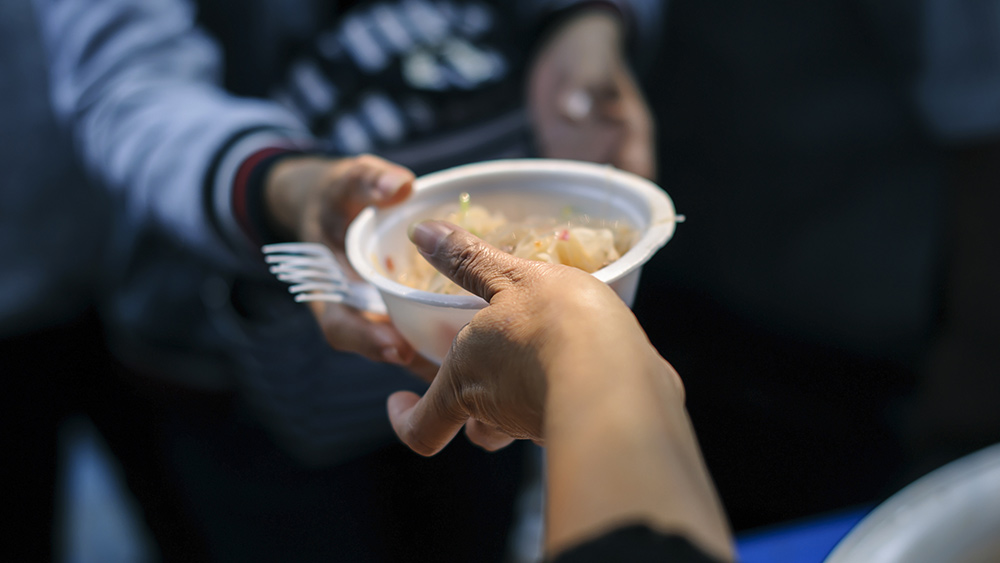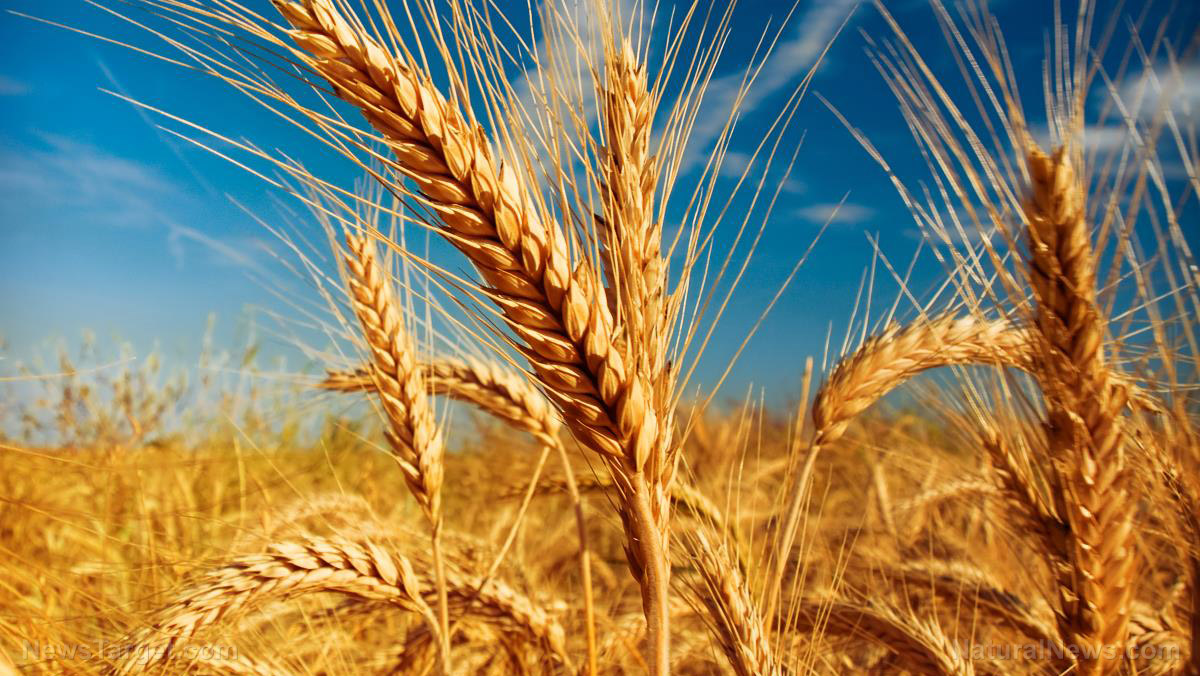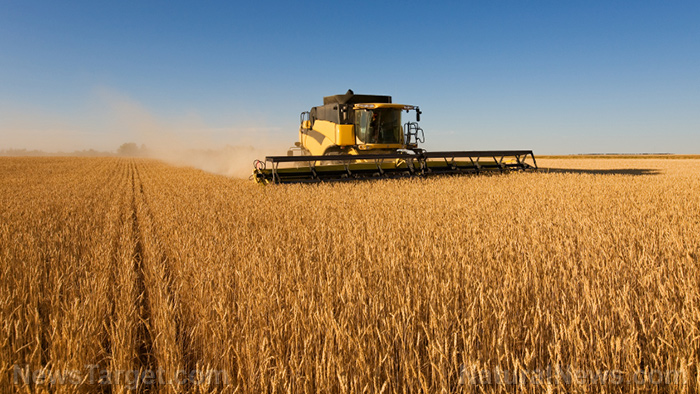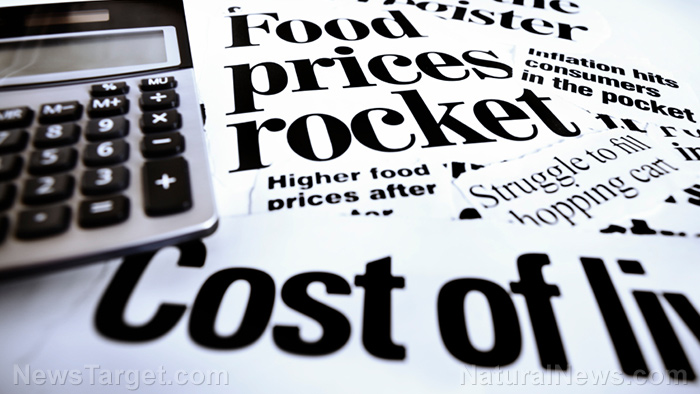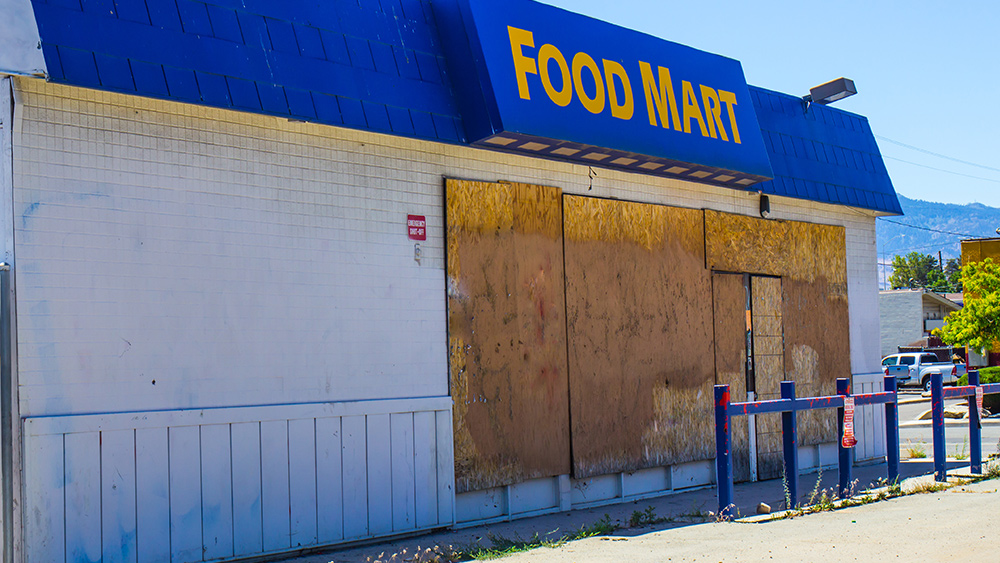French municipalities handing out food vouchers to deal with food inflation
05/27/2022 / By Arsenio Toledo

Municipalities all over France have begun providing their residents with food vouchers to help families deal with spiraling food inflation.
The vouchers are being distributed by many city governments. They can be cashed in at supermarkets and come in denominations of five, 20 and 30 euros. (Related: Nearly two-thirds of Americans are now living paycheck to paycheck amid inflation crisis.)
“Everything has increased in price, everything, even pasta,” said Bernadette Chacornac in French in an interview with France 2. Chacornac is a pensioner living in an agricultural community in France. She relies on a pension of 900 euros ($964.7) per month to help her pay for essential goods and services. Due to inflation, this meager pension is no longer enough.
“I have my partner, I have my son, so all three together, [this is expensive],” she said.
Lionel Buchet, mayor of the commune of Saint-Arcos-de-Barges in south-central France, told France 2 that the price of food has “jumped terribly” in the past few months, and expressed concerns that food inflation will keep rising.
According to the National Institute of Statistics and Economic Studies (Insee), France’s national statistics bureau, the inflation rate for April was 4.8 percent. The institute believes the inflation rate will jump to six percent or more in June.
Inflation in France has been driven by the 25 percent jump in fuel prices and the six percent rise in food costs, with the hardest hit food products being fruits, vegetables, bread products, pasta, cooking oil and poultry.
Insee expects inflation to continue to rise beyond June. The bureau predicts that further rises will “remain dependent on geopolitical developments around Russia,” referring to the ongoing conflict in Ukraine and the economic fallout the West is experiencing following its imposition of sanctions.
Before France followed its allies in sanctioning Moscow, it relied on Russia for about 17 percent of its gas and nine percent of its oil needs.
City administrations have reportedly spent about 37 million euros ($39.5 million) on food vouchers.
Macron vows to give more food vouchers rather than control inflation
Recently re-elected President Emmanuel Macron is pledging to increase welfare benefits and issue more food vouchers for the country’s poorest households. He wants to do this instead of controlling inflation.
Government spokesperson Gabriel Attal noted that the finance ministry has already prepared a revised budget that includes an array of measures to cover the president’s pre- and post-election campaign promises. This includes extending price caps on energy through to the end of 2022, introducing more food vouchers, making fuel subsidies more targeted and cutting television license fees and taxes on bonuses for low-income workers.
All of these welfare spending items are still subject to revision, especially since, as Attal noted, the government needs to take inflation into account. The government has not made any statements acknowledging that it is taking into account how much more euros French taxpayers will have to pay to fully fund the expansion of the French welfare state.
This move to provide more benefits like food vouchers rather than directly deal with inflation may be a way to court more welfare-dependent voters ahead of a parliamentary election in June. Marcon’s governing coalition is only slightly ahead in recent polls and he is at risk of losing his majority and thereby leaving him with a hostile legislature, which could hamstring Macron’s desire to move ahead with economic reforms that include plans to rein in welfare and pension spending.
The president’s main rival in obtaining a majority in the legislature is a left-wing coalition led by third-place presidential candidate Jean-Luc Melenchon. This alliance has made more radical promises for French voters that keep this electoral coalition popular regardless of the likelihood of these policies devastating the French economy.
Read more about skyrocketing food prices around the world at FoodInflation.news.
Watch this interview featuring the Health Ranger Mike Adams as he talks about how the food shortage crisis is turning out to be the biggest shock of a lifetime.
This video is from the Health Ranger Report channel on Brighteon.com.
More related stories:
Canada’s inflation rate reaches 31-year high, spike in grocery prices highest since 1981.
Ukraine reports two-thirds decrease in grain exports while global wheat prices skyrocket.
Germany BLOCKS Russia from exporting food, then BLAMES Russia for causing brutal hunger.
Food inflation in the U.S. breaks 42-year record… and there’s no end in sight.
Sources include:
Submit a correction >>
Tagged Under:
big government, bubble, chaos, collapse, Emmanuel Macron, food collapse, food inflation, food prices, food stamps, food supply, food vouchers, France, grocery, hunger, inflation, panic, politics, products, risk, welfare, welfare state
This article may contain statements that reflect the opinion of the author
RECENT NEWS & ARTICLES
FoodRiots.news is a fact-based public education website published by FoodRiots.news Features, LLC.
All content copyright © 2021 by FoodRiots.news Features, LLC.
Contact Us with Tips or Corrections
All trademarks, registered trademarks and servicemarks mentioned on this site are the property of their respective owners.


